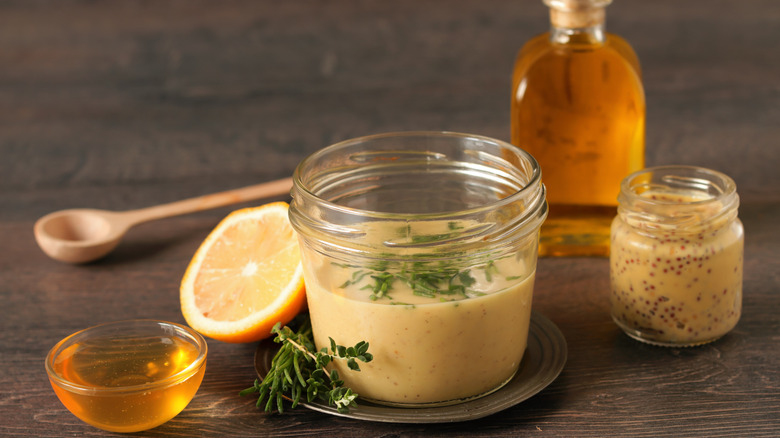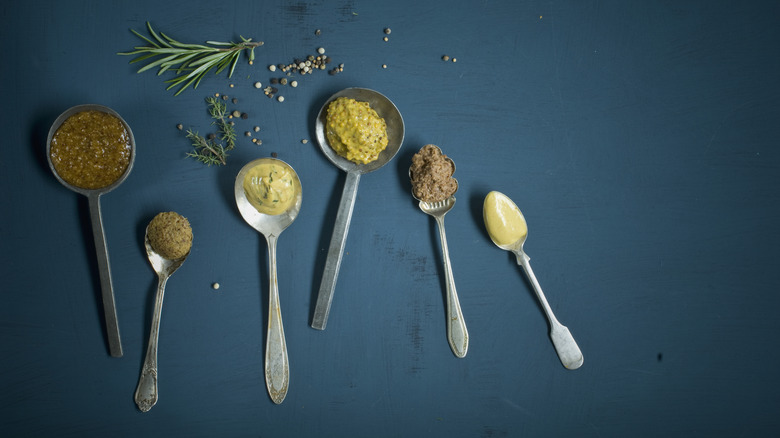Honey Mustard Goes Back Further Than We Thought
Unless you were born under a rock or you just hate condiments, you've probably heard of honey mustard. It's a fantastic go-to for dipping pretzels or slathering on chicken sandwiches. While it may seem thoroughly modern, the history of this sweet and tangy sauce actually goes back much further than you'd think. In fact, ancient Romans were whipping up their own versions of honey mustard centuries before drive-thru dips.
While mustard might now be associated with more upscale culinary traditions (it's the secret ingredient in Ina Garten's fancy roasted fish recipe and sometimes glazes chicken at restaurants), it was a commonly used sauce in ancient Rome. Interestingly enough, two Roman agricultural experts, Columella and Palladius, wrote down recipes for mustard that were pretty close to what we eat today. Columella, from the first century, and Palladius, active three centuries later, both included mustard in their agricultural and culinary treatises. In their recipes, they liked to keep it simple, and honey was used to balance the heat and bite of mustard, resulting in a flavor similar to today's mustard dips.
How did the Romans make honey mustard?
If you want to do as the ancient Romans did, the mustard recipes of Columella and Palladius can give a glimpse into the simple, everyday ingredients used in kitchens past. Columella's recipe included wheat starch, vinegar, pine nuts, and mustard seeds and, according to him, was delicious served with turnips.
Palladius, on the other hand, preferred a sweeter version of the sauce. He used a similar base of mustard seeds and white wine vinegar but added honey and extra virgin olive oil for a rich texture. Historians believe these recipes were accessible to farmers and common folk, not just the Roman elite. This helped spread the popularity of the condiment far beyond aristocratic banquets at the time.
Considering mustard is such a staple today — whether paired with smoked sausages, used as a marinade, or even taken as a hangover remedy — it's clear this condiment has no plans to leave the kitchen anytime soon. Sure, recipes have evolved over the centuries, but the foundational elements of these ancient preparations have remained remarkably consistent. Between the sweet burn of the honey and mustard, it packs just as much of a punch today as it did in ancient Rome and just proves that the simplest ingredients never go out of style.

